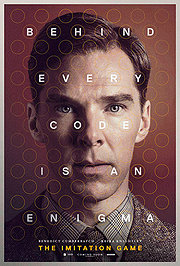Consider the Wisdom of Winston Churchill
The Imitation Game tells the true story of Alan Turing who was hired by the British government to  crack the codes of Germany’s WWII Enigma machine used to communicate their warfare strategies. Turing’s awkward social skills made fellow scholars suspicious and fearful of his strange determination to build a code-cracking machine to solve what humans could not.
crack the codes of Germany’s WWII Enigma machine used to communicate their warfare strategies. Turing’s awkward social skills made fellow scholars suspicious and fearful of his strange determination to build a code-cracking machine to solve what humans could not.
Despite many obstacles, Turing’s digital computer or as he called it, “an electrical brain” broke the German’s Enigma thanks to his tenacious brilliance. By the way, the word “enigma” is defined as a puzzle that appears to be unsolvable.
Winston Churchill deserves some credit in all this. It was under his visionary authority that Turing was granted permission and funds to build his machine overriding Turing’s immediate authorities. Churchill realized that building a machine that processes far faster than the human brain would be the only way to win the war. He recognized that a “social misfit” like Turing had an imagination that could not, would not, be capped and banked on it. It was estimated that Turing’s computer saved 14 million lives.
So how does this historical movie connect with today’s piano teachers, students and their parents? Read on.

